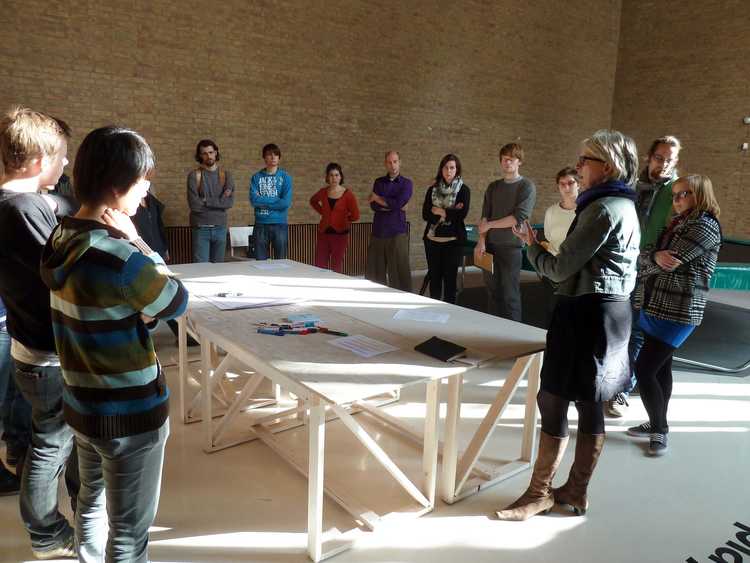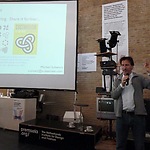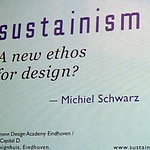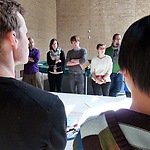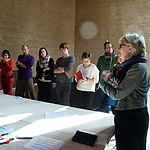The lecture programme involves architects, designers, digital entrepreneurs, and cultural researchers and focuses on how to operate successfully in a green world. What does a world look like that is more connected, more locally oriented, more digital, and more sustainable? And how can designers put related principles into practice?
Workshop
A workshop by Diana Krabbendam of The Beach took the shape of an open group discussion about how we can design according to sustainist values, what it entails to be a sustainist designer, and what the overall relevance of this new terminology is. Approximately 20 students attended and a lively discussion followed.
A significant gap in opinion about the appropriate rationale behind designing became evident between different workshop participants. Some of them were convinced of the primary goal of demand-driven design, while others were more attracted by the idea of value-driven design.
The important question of how to design actual meaning into our products, services, and environments was discussed extensively nonetheless. For example, in our online lives most of us are connected to many people, but in real life our connectedness to others may be minimal. How might we design for real connectedness online and in real-life?
To design in a truly sustainist manner, it is essential to mix with the people you are designing for and to involve these people in the design process. This has major consequences for the roles designers take on: being a provider, a generator, a facilitator? What does it mean for the responsibility designers have? And for their authorship?
Some participants wondered why many well-meant projects fail. One of the reasons could be that fundamental values like sharing or localism are not included in the design. To make the results of our designs meaningful, we not only have to include new values in the design process, but need to combine them, too.
We discussed a new perspective on design as a profession and how it can take on a new role in societal transformations. In the 30 minutes that were available to us, we made a good start. Hopefully many more gatherings and debates will follow. Meanwhile, the many good examples of sustainist design that were mentioned can be contributed to the Open Book for Sustainist Design platform.
